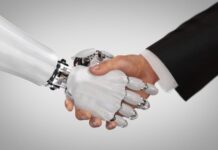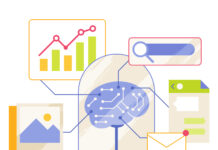
Artificial Intelligence (AI) is just beginning to transform the way companies do business.
That said, companies are quickly jumping on the AI bandwagon, with the investment in AI predicted to grow by 300 percent this year, according to research by Forrester. The initial fear is that AI will eliminate jobs from the workforce; however, Deloitte’s 2017 Human Capital Trends Report, which surveyed more than 10,000 HR and business leaders in 140 countries, shows otherwise. The report concludes that AI is not exactly eliminating jobs but more so the task of jobs, while creating new jobs that require human instincts such as empathy, communication and interdisciplinary problem solving.
The Deloitte survey found that 41 percent of respondents have made significant progress in adopting AI technologies, which means companies have had to find new tasks for current staff members. That means companies are putting a much greater emphasis on finding employees who fit their company culture instead of necessarily hiring the most qualified person for the job. And entire departments are shifting their focus from traditional computing to a more complex experiential approach that requires a human element. For instance, HR programs are balancing the use of digital and mobile tools with staff members who are now performing tasks that engage employees more, according to an article by Fast Company. Another way companies are preparing for future changes in technology is by reorganizing entire departments to be more team-centric, according to the Deloitte survey.
In the hospitality industry, hotels have freed up concierge staff by offering a robot concierge or chatbot. And meeting planners now have the help of meeting scheduler apps that basically act as virtual assistants. While it’s still too early to tell how much meeting planners specifically will need to balance AI with their staff members, it never hurts to plan ahead for this fast-approaching shift in the workplace.










